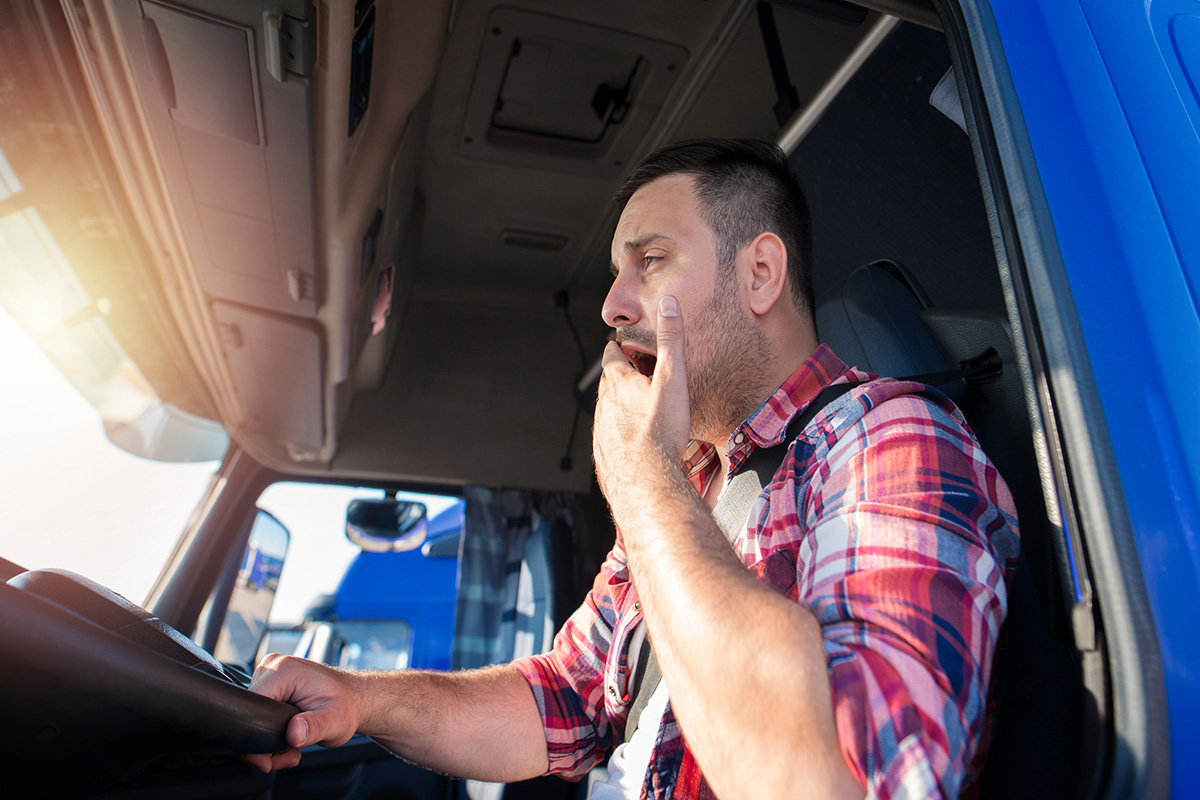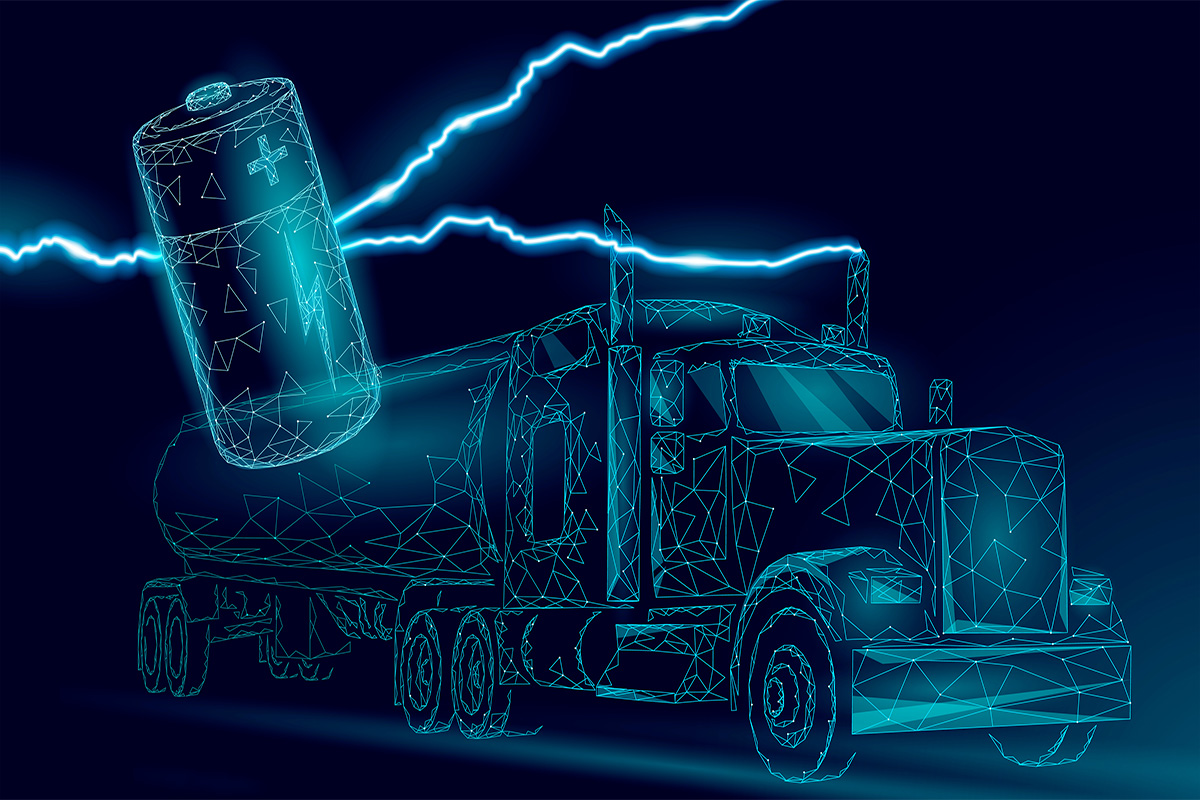September 25, 2022
How Truckers Can Battle Fatigue on the Road
What Causes Fatigue and How Can Truckers Battle it on the Road
Most of us have faced fatigue in one form or another, especially at the end of a long workday. Usually, after resting overnight, fatigue is diminished, and our bodies are restored. For those in health care, law enforcement, trucking, and other jobs with hectic, often long, and sporadic schedules, finding rest isn’t always easy, and many must push through the fatigue to keep the wheels turning. As a trucker, fighting fatigue on the road is important because falling asleep on this job can be life-threatening. Learn what causes fatigue and how to conquer it when duty calls.
Battle Fatigue on the Road with More, and Better Sleep
The main reason we feel tired is a lack of sleep. Our bodies need rest to recover and to prepare us for the coming day. Ideally, having the same bedtime each night and sleeping for 7-8 hours is what we need to be fully rested for the next day. While these routines may be easy to keep for growing children, adult duties and work schedules often get in the way of ideal sleep schedules, and we usually hunt for even 10 minutes of extra shuteye. Getting good sleep can often be a struggle for truckers, with many days and nights spent on the road. Finding ways to deal with sleep problems as a truck driver is important because it means being more alert while driving, which is vital for the safety of drivers and others around them. Sleeping in the truck is often the best and only option for truckers, but it cannot be easy. When driving with a partner, you can sleep while your partner drives, and customizing a routine for yourself during these times can help pack an extra punch when reducing fatigue.
Create a Trucker “Bedtime” Routine
Think out a small “bedtime” routine for yourself that you do every time you have an opportunity to sleep. It can be as simple as using the restroom, taking your shoes off, and putting on a sleep mask. The key is to make it a routine and do the same thing each time before bed. This repetition before bed will cause your body to recognize that rest is coming, helping you get the most out of the time available for sleep.
Get More and Better Sleep by Falling Asleep Faster
Whatever you do before going to sleep, don’t use the phone or computer. Screens disrupt sleep cycles, and when every minute is precious, we can’t afford to lose any to screens. Save phone surfing time for toilet time like everyone else. If quickly falling asleep is too difficult, and the mind is still racing when needing to quiet down, practice the age-old “counting sheep” trick in new ways. Combine it with a meditation technique that visualizes problems, stresses, and anxieties as leaves of different colors floating down a softly rippling river. Watch them float away and disappear, taking weight off your mind and allowing sleep to roll in calmly.
What Causes Fatigue for Truckers on the Road
Aside from a lack of sleep, other factors contribute to fatigue, some of which are harder to avoid than others.
Poor Diet Can Cause Fatigue in Truckers
A poor diet can be the culprit for many illnesses, but we may have overlooked that what we eat on the road can also cause fatigue. Consuming large amounts of fat can lead to daytime sleepiness, making it difficult to stay awake during work or other daytime tasks. Diets high in saturated fat, and sugar, especially those with low fiber levels, can experience disrupted sleep or wake up feeling groggy and not rested. Low iron levels can also cause fatigue, so swapping French fries for a leafy green salad with your burger can be a start. Packing some healthy snacks before starting a trip is another way to get more nutrition.
Stress Can Cause Fatigue in Truckers
Like any job, there can be stresses involved with living a work life on the road. These stresses can be unavoidable, but if not addressed, they can silently hinder our energy for the day. As a trucker, dealing with homesickness can be a stress that can creep up on even the most unsuspecting driver, especially those with families back home. Finding ways to cope can keep stress from affecting energy levels.
Lack of Exercise Causes Fatigue on the Road
The importance of exercise has been preached by doctors, nutritionists, and other health-conscious individuals since the beginning of time. Working a hectic schedule or being on the road for extended periods means exercise is often on the back burner. But we might have to dust off our weights and redownload those apps because lack of exercise can make us more tired during the day. Finding the time and a space to exercise can be difficult, but incorporating even a 10-minute walk or 15-20 minutes of aerobic exercise can make a positive difference in eliminating fatigue on the road.
What to Do if Fatigue Hits on the Road
Fatigue can set in even at the worst time, but sometimes we need to find ways to push through just a little longer and rid ourselves of the yawns and itchy, watery eyes until we can sleep again. There are many tricks and tips for staying awake while driving, and finding a couple that works for you might come in handy the next time you hit the road.
Battle Fatigue with the Right Music
Music significantly affects our mood and can bring out just about every human emotion. Our music choices affect driving; certain ones can make us feel energized while others put us to sleep. If faced with fatigue on the road, crank up the radio to some fast-paced jams that make you feel happy and energized. Avoid songs that are slow or make you sad, and save the classical for another day.
Stretch/Move to Battle Fatigue on the Road
Sitting behind the wheel for so long causes fatigue, which will eventually take its toll. Try stretching or moving around if you cannot get some sleep when fatigue hits. Pull over, switch with a partner and do some stretches and high knees for a couple of minutes to get the blood flowing again. Stretching and moving like this for 5 minutes can make a big difference when you get back behind the wheel.
Battle Fatigue with a Caffeine Nap
If you have up to 20 minutes to spare and have access to coffee, try a caffeine nap. It’s a great way to kick-start the caffeine in your body, giving an extra energy jolt. Do this by downing a cup of coffee. The point isn’t to sip it for a long time but to get it into your body as quickly as possible without burning your mouth. A small coffee is the best choice because after drinking it fast, take a nap for 20 minutes. The rest will kick start the caffeine leaving you more energized after waking versus taking a nap without coffee.



